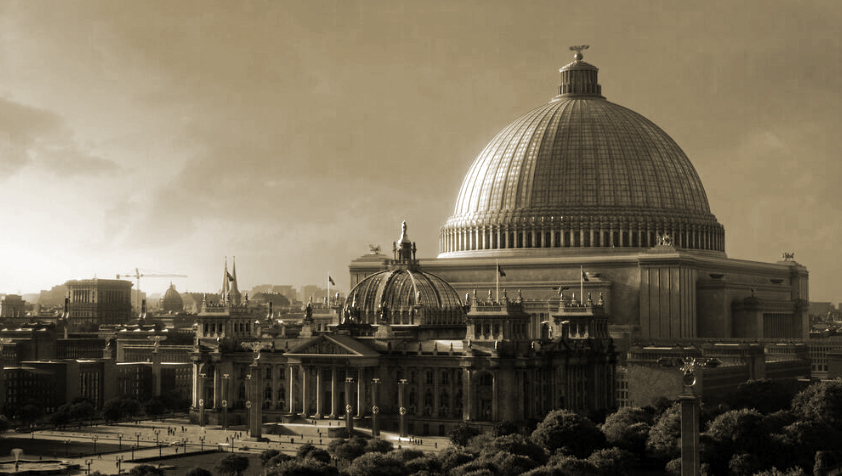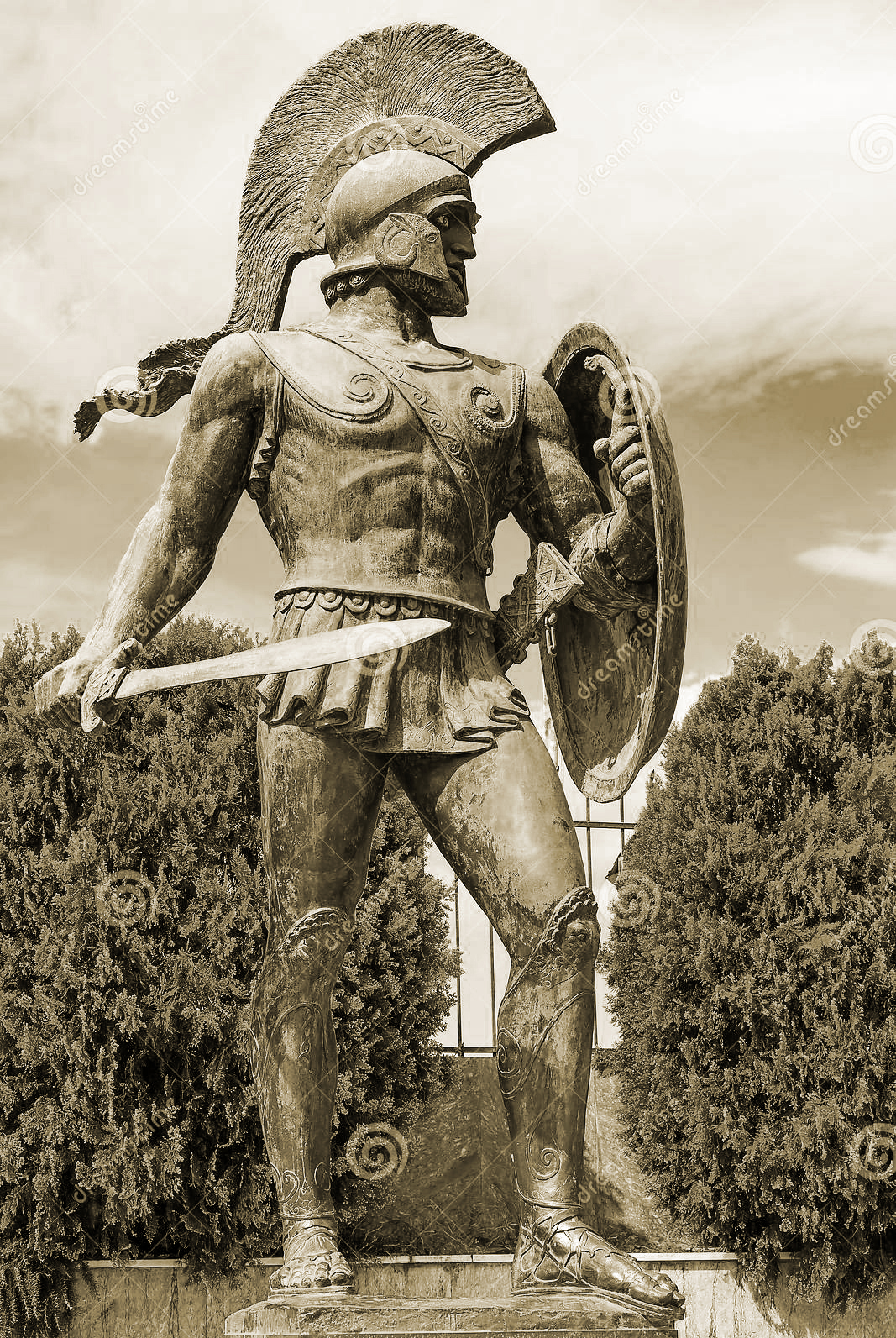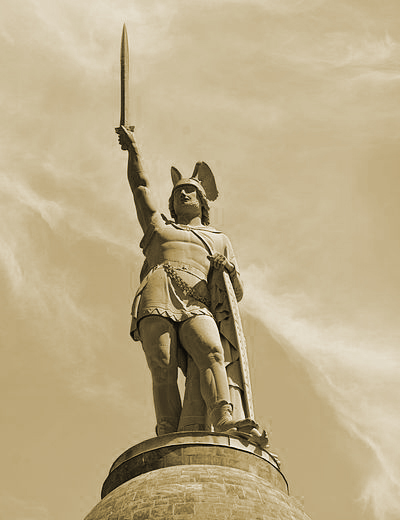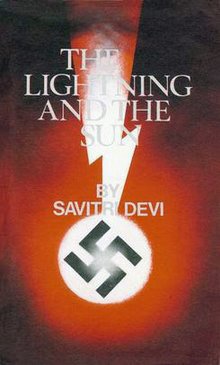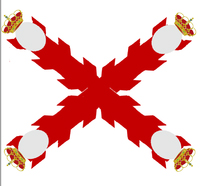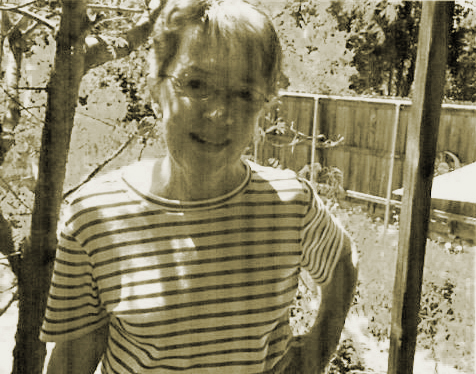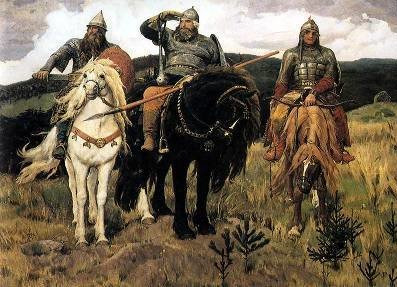Five years ago, trying to communicate with the commenters of The Occidental Observer, Jack Frost said: ‘Although it might be possible to develop a racist interpretation of Christianity (e.g., what the Nazis tried), I’ve never seen a convincing theological justification of it. The fact that all major churches and 99%+ of all who today call themselves Christians reject racism ought to tell you something… You probably want to hang on to most of Christianity as it has been “traditionally” practiced in relatively modern times, while discarding only the anti-racism. Everyone who ever tried that has failed, but I guess you don’t see that as a problem. Then again, the cognitive dissonance issue is nearly as problematic. In order to accept being called a racist or a Nazi with equanimity, normal American whites would have to reconcile that with their country’s history of being violently opposed to racism of any kind, from the Civil War forward. They would have to admit to themselves and to others that all of that blood shed in trying to stamp out racism had been shed in vain, and in fact, worse than in vain, in an evil cause. They would have to admit that their ancestors were evil, and that they themselves had also been evil before they saw the light and became racists’.
Frost thus tried to argue with the Christian white nationalists of the US. Now let’s talk about a normie at the south of Rio Grande.
A guest at my home, a chiropractor, said this week that the covid-19 pandemic is an international conspiracy to force everyone to be vaccinated and implanted with a chip for social control purposes. What is the difference between this nutter and many who, in the white advocacy forums, advance the craziest conspiracy theories? Doesn’t this have to do that all these people, normies and nationalists, are like the Jew Andrew Solomon (i.e., they violate the Oracle of Delphi’s commandment, they don’t know themselves)? If they knew themselves they would know that many of their internal demons (read: conspiracy theories), and even the idea they have about the (non-existent) Hebrew god they worship, is nothing more than the shadows transferred from the parental image. Paleological thinking has not been completely surpassed in the West, not even among racialists. Even high IQ Jews commenting on racial issues grotesquely distort reality.
Consider Ron Unz for example. This Jew likes to brag that he is against the official narrative about World War II and the assassination of John F. Kennedy. Nothing could be farther from the truth, as most Americans believe that Oswald did not act alone. Furthermore, the overwhelming majority of books about the murder promote conspiracy theories, in addition to blockbuster movies like the filth filmed by Oliver Stone. What Unz doesn’t want to see is that no one reads what he calls the official Warren Report. Instead, they consume all the prolefeed for the proles on JFK with which the System has stupefied the Americans.
It is true that I no longer enter the sites of white nationalism, but I do click on the threads of the commenters when they link to this site. In one of these threads I saw that Jack Frost, who now comments under another pseudonym in Unz Review, accepts the official story about Caligula, which paints him as a monster. Let us remember what Evropa Soberana tells us in the essay that I have promoted the most on this site, which teaches us to understand JQ at its origins. I quote from the chapter ‘Rome against Judea; Judea against Rome’ in The Fair Race’s Darkest Hour:
Gaius Julius Caesar Augustus Germanicus (‘Caligula’)
 In 38, Caligula, the successor of Tiberius, sends his friend Herod Agrippa to the troubled city of Alexandria, to watch over Aulus Avilius Flaccus, the prefect of Egypt, who did not enjoy precisely the confidence of the emperor and who—according to the Jew Philo of Alexandria—was an authentic villain. The arrival of Agrippa to Alexandria was greeted with great protests by the Greek community, as they thought he was coming to proclaim himself king of the Jews. Agrippa was insulted by a crowd, and Flaccus did nothing to punish the offenders, despite the fact that the victim was an envoy of the emperor. This encouraged the Greeks to demand that statues of Caligula be placed in the synagogues, as a provocation to Jewry.
In 38, Caligula, the successor of Tiberius, sends his friend Herod Agrippa to the troubled city of Alexandria, to watch over Aulus Avilius Flaccus, the prefect of Egypt, who did not enjoy precisely the confidence of the emperor and who—according to the Jew Philo of Alexandria—was an authentic villain. The arrival of Agrippa to Alexandria was greeted with great protests by the Greek community, as they thought he was coming to proclaim himself king of the Jews. Agrippa was insulted by a crowd, and Flaccus did nothing to punish the offenders, despite the fact that the victim was an envoy of the emperor. This encouraged the Greeks to demand that statues of Caligula be placed in the synagogues, as a provocation to Jewry.
This simple act seemed to be the sign of an uprising: the Greeks and Egyptians attacked the synagogues and set them on fire. The Jews were expelled from their homes, which were looted, and thereafter segregated in a ghetto from which they could not leave. They were stoned, beaten or burned alive, while others ended up in the sand to serve as food to the beasts in those macabre circus shows so common in the Roman world. According to Philo, Flaccus did nothing to prevent these riots and murders, and even supported them, as did the Egyptian Apion, whom we have seen criticising the Jewish quarter in the section devoted to Hellenistic anti-Semitism.
To celebrate the emperor’s birthday (August 31, a Shabbat), members of the Jewish council were arrested and flogged in the theatre; others were crucified. When the Jewish community reacted, the Roman soldiers retaliated by looting and burning down thousands of Jewish houses, desecrating the synagogues and killing 50,000 Jews. When they were ordered to cease the killing, the local Greek population, inflamed by Apion (not surprisingly, Josephus has a work called Contra Apion) continued the riots. Desperate, the Jews sent Philo to reason with the Roman authorities. The Jewish philosopher wrote a text entitled Contra Flaccus and, along with the surely negative report that Agrippa had given to Caligula, the governor was executed.
After these events, things calmed down and the Jews did not suffer violence as long as they stayed within the confines of their ghetto. However, although Flaccus’ successor allowed the Alexandrian Jewry to give their version of the events, in the year 40 there were again riots among the Jews (who were outraged by the construction of an altar) and among the Greeks, who accused the Jews of refusing to worship the emperor. The religious Jews ordered to destroy the altar and, in retaliation, Caligula made a decision that really showed how little he knew the Jewish quarter: he ordered to place a statue of himself at the Temple of Jerusalem. According to Philo, Caligula ‘considered the majority of Jews suspects, as if they were the only people who wished to oppose him’ (On the Embassy to Gaius and Flaccus). Publius Petronius, governor of Syria, who knew the Jews well and feared the possibility of a civil war, tried to delay as long as possible the placement of the statue until Agrippa convinced Caligula that it was a poor decision.
In 41, Caligula, who already promised to be an anti-Jewish emperor, was assassinated in Rome, which unleashed the violence of his German bodyguards who had not been able to prevent his death and who, because of their peculiar sense of fidelity, tried to avenge him by killing many conspirators, senators and even innocent bystanders who had the misfortune to be in the wrong place at the wrong time. Claudius, the uncle of Caligula, would become the master of the situation and, after being appointed emperor by the Praetorian Guard, ordered the execution of the assassins of his nephew, many of whom were political magistrates who wanted to reinstate the Republic.
This is the probable cause of the unprecedented historical defamation of this emperor: the texts of Roman history would eventually fall into the hands of the Christians, who were mostly of Jewish origin and viscerally detested the emperors. Since, according to Orwell, ‘he who controls the past controls the present’ the Christians adulterated Roman historiography, turning the emperors who had opposed them and their Jewish ancestors into disturbed monsters. Thus, we do not have a single Roman emperor who has participated in harsh Jewish reprisals who has not been defamed by accusations of homosexuality, cruelty or perversion. The Spanish historian José Manuel Roldán Hervás has dismantled many of the false accusations against the historical figure of Caligula (The Fair Race’s Darkest Hour, pages 59-63, italics added in this last paragraph).
Roldán-Hervás’ book is in Spanish. But English speakers who are interested in a view of the facts that sticks a little more to history than popular calumnies in the Judeo-Christian era can read the Wikipedia article on the Roman emperor. (Although Wikipedia is enemy territory, they sometimes write comparatively neutral articles. At least the lead paragraph of the article on Caligula, for example, does not describe him as a monster.)
I have said several times that to save the white race from extinction it is necessary to rewrite the history of the West, so I use the symbol of the weirwood tree and the raven that, unlike the normies, can see the past. Following the crow’s lead, it is not only necessary to reclaim the pagan emperors such as Caligula and Nero within a new narrative. Concurrently we must take down from the pedestal those figures that Christianity placed on top, something that I would like to illustrate with Charlemagne.
The only living historian for whom I have respect told me that he would rate Charlemagne well up in the top five most evil characters of European history. I recently acquired Thomas Hodgkin’s The Life of Charlemagne, which I recommend to those who have swallowed the Christian version of this evil man. If we keep in mind the message of the historical sections in The Fair Race, we will see that even after the Aryan apocalypse of the 4th and 5th centuries, there were still many Germanic tribes in the 6th and 7th centuries who refused to worship the god of the Jews. Charlemagne forced these uncontaminated Aryans to worship the enemy god: a historical milestone that, for the 3-eyed raven, has to do directly with the philo-Semitic state that the entire West is currently suffering. (We could imagine a parallel world in which at least part of the Aryan populations had not been worshiping, for more than a millennium, the volcanic demon that appeared to Moses in a desert.)
Christianity, or more accurately the secular ethics that was inspired by Christian ideals after the French Revolution, has hypnotised all whites, racists included. Rarely do I criticise William Pierce, the best mind the United States has produced. But it is about time to do it. The Frost quote at the top of this article nails it. After The Turner’s Diaries, the anti-Christian Pierce cucked with his second novel, Hunter, by putting a Christian preacher as the spark that could awaken Americans from their torpor. That’s a failure to grasp the crow’s view about the CQ!
Now that, thanks to the insight of the three-eyed crow I have broken with American White Nationalism, I have no choice but to start getting acquainted with German National Socialism…
Berlin, 1936
Hitler has been in power for three years, a period during which hundreds of kilometres of roads and thousands of houses have been built for the German people. In 1936 the Führer ordered to launch his most ambitious project: the architect Albert Speer would erect a gigantic city in the old centre of Berlin.
In the spring of 1936, Hitler was inspecting the construction of a highway alongside Albert Speer when he suddenly said: ‘I still have left for commissioning an important building, the most impressive of all’. At the time that was no more than a comment, because there were more urgent international policy issues to attend to. Hitler had decided to test England and France by sending German troops to the Rhineland region, whose control Germany had lost in World War I and which was to remain demilitarized under the Treaty of Versailles. London and Paris reacted with weak protests, and Hitler knew then that he might be on the hunt for new territory.
In June Hitler was ready to reveal to Speer his architectural plans for Berlin. The first thing he did was to warn him that he should skip the bureaucracy. ‘The city council is impossible,’ he said. ‘From now on, you make the plans’. Then he gave him two pieces of paper the size of two postcards and added: ‘Take these two drawings and when you have something ready, show it to me’. Hitler’s drawings depicted an enormous triumphal arch and an even larger vaulted hall, with a capacity of 180,000 people. These constructions would be located at the ends of a five-kilometre long avenue inspired by the Champs Elysées in Paris. ‘I made these sketches ten years ago and have kept them because I have never had doubts that one day I would build these two buildings. And that’s what we’re going to do now’, he confided to Speer, who left the meeting thoughtful and surprised.
The architect was thirty-one years old and, in just a decade, he had starred in a meteoric career: from an unemployed draftsman living from his father to a celebrated architect of the National Socialists.
Speer first saw Hitler at a rally in Berlin in the 1930s, and he was dazzled by his charisma, which led him to join the National Socialist Party and work there as an assistant. After Hitler’s rise to power in 1933, he was commissioned to reform the party headquarters in Berlin. His colossal style earned him immediate recognition. When Hitler saw his works, he commissioned him to reform the Zeppelin Field in Nuremberg and, before it was completed, assigned him the following task: rebuilding Berlin as Germania, the capital of the Third Reich that was to last a thousand years.
According to the Führer’s instructions, the works were to be completed by 1950. Speer had a vague notion of the dimensions Hitler was thinking of. To be sure, he enlarged the drawings and compared the size of the buildings with that of the people who appeared there. He also realised that the cupola Hitler had planned for the Grosse Halle was too flat and instead projected an enlarged version of St. Peter’s Basilica in Rome. The triumphal arch, to which the Führer had added a simple balustrade, ended up with a forest of columns.
After several months, Speer had his sketches ready. Out of respect for Hitler’s designs, he did not sign them and left the space blank for the Führer to do so, but Hitler declined the honour.
It didn’t take long for Speer to realise that building a five-kilometre version of the Champs-Elysées in Berlin, with the Grosse Halle on one end and the Arc de Triomphe on the other, was not so easy. Unless it was integrated into a more ambitious city project, the grand avenue would seem out of place. The plan quickly took on gigantic proportions. Speer decided to create two axes (north-south and east-west) that would intersect in the centre, near the Grosse Halle, and would have an airport at each of the four points. Around the city a ring road would extend, within which there would be other circular highways, forming rings. The access roads would come out of the centre, like the spokes of a wheel. The plan included the complete restructuring of the railway network, which would have only two main stations, Nordbahnhof (North Station) and Sudbahnhof (South Station). Areas with roads considered obsolete would be free for other purposes.
The project also included residential neighbourhoods, a university, a hospital area, new parks, and several subway lines. Hitler was delighted but, as the months went by, it became clear that he was particularly interested in Victoria Avenue, included in the north-south axis. In meetings where they talked about the project, he listened patiently to all the news and then asked: ‘Where do you have the plans for the Avenue?’ They saw each other several times a week, in the late afternoon, when the Führer had finished the work of the day, and they could spend hours hunched over pianos and models. ‘One day Berlin will be the capital of the world’, Hitler predicted, and imagined the visitors stunned and intimidated by the magnificence of those buildings.
Hitler had Speer’s office placed near the Reichstag, so that just by walking through a garden, he could go see him and also the thirty-meter-long model of Germania. This was divided into several modules mounted on wheels, so that the Führer could move them and enter the city. He also used to bend down to observe the model at eye level.
He delighted in imagining ministries, exhibition halls, and office buildings of major German corporations; also the new opera, the palaces and the luxurious hotels. ‘I was participating in that reverie willingly’, Speer later wrote. On one occasion, those responsible for air defence heard about the 290-meter-high Grosse Halle project. One of them warned that enemy planes would use the building as a target to attack Berlin, but Hitler ignored it. ‘Goering has assured me that no enemy aircraft could enter Germany. We are not going to let this kind of thing interfere with our plans’, he said. The leader and architect tried to keep the project a secret. Hitler feared the possible reaction of Berliners when they were told that at least 50,000 houses had to be thrown away to make way for new construction; but the mayor of Berlin, Julius Lippert, knew the plans and showed his opposition, which led to Hitler’s removal from office to move on.
The works started in 1939, with columns of workers moved to the centre of Berlin to demolish the buildings. The inhabitants of the area had to abandon their homes and were housed in houses that had belonged to the now expelled Jews. Speer had granite brought from Norway and Sweden, as he believed that this material would impregnate Germania with the magic of the Greek and Roman architecture (see YouTube clip above, ‘What did ancient Rome look like’) and give it an image of greatness and eternity. In 1941, Swedish stone producers signed an agreement with Germany to sell 10 million cubic meters of granite to it. This guaranteed supply for 10 years, but few deliveries were ever made. Just a year later, in 1942, the Third Reich announced that it could no longer receive granite. Germania’s work had been suspended and the workers were assigned to much more urgent tasks. The Germans paid for the purchases of the material, but left the granite stacked in the nations of origin with the intention of collecting it once they won the war.
To secure victory over the Allies, Hitler had appointed his favourite architect, Speer, as the new Minister of Armament. Thanks to his organizational skills, Speer managed to multiply war production by resorting to different methods, including the use of prisoners from concentration camps as slave labour. During the Nuremberg Trials, Speer denied having any news about the extermination of Jews or the concentration camps. At the end of the process, he managed to avoid the death penalty, but was sentenced to twenty years in prison, which he served in Spandau prison in Berlin. When he was released, Speer went to the Tempelhof airport and crossed the area that was intended to be Victory Avenue.
Had it not been for American intrusion in Europe, the Führer’s palace would have occupied an area of two million square meters. As I said, it had to be finished by 1950, the year in which Hitler had planned to start inhabiting it. Today’s white advocates could have visited it!
But due to the Americans Hitler had to commit suicide to prevent the humiliation at Nuremberg. The buildings were demolished. The granite blocks were never collected. After the war they were stored for years in different ports until, in the end, they were acquired by tombstone manufacturers. In this way, a large part of Germania, Hitler’s dream, ended in different European cemeteries. Thus Germania (like the moral of the whole white race) ended up turned literally into tombstones…
Let us now return to the issues at the beginning of this article. To understand this site, it is essential to remember the message of Soberana’s master essay on the surreptitious war that Judea waged against Rome during the Christian takeover of the classical world. It is also necessary to understand that, once Soberana’s vision has been assimilated (whom I have compared to the raven who sees the past as it happened), many so-called civilisation builders of the Christian era become monsters (for example, Charlemagne) and many monsters become murdered heroes (for example, the anti-Semite Caligula).
This transvaluation of values is only possible by seeing the past as it actually happened.
From this angle, which can also be seen in Pierce’s only non-fiction book, the so-called ‘barbaric’ invasions of the Germans in Rome that culminated in 410 AD were, in fact, Aryan invasions on a treacherous city that had been conquered by a Semitic cult. By transvaluing values, the ‘barbarians’ would now be the miscegenated Romans that had been brainwashed by the Semitic bishops to the extent of destroying their classical culture (the German incursions into Rome may have once again brought light into Europe had it not been for what Charlemagne would do centuries later).
The way Judea defeated Rome was very similar to the way Jews in the West have been acting since Napoleon emancipated them: by controlling the narrative with which whites see themselves. In the 4th and 5th centuries subversion was carried out through theologians and Semitic bishops who gained enormous power to educate princes from Constantine forward. From this angle, the imperial Rome of the last centuries is similar to imperial America since Jewry’s presence began to become evident in the media. Charlemagne’s favourite book was St. Augustine’s The City of God Against the Pagans, an ideology that Charlemagne used to genocide the Saxons and convert the Saxon survivors to the Semitic cult. Similarly, as Tom Sunic has written in Homo Americanus, the Americans’ initiative to intervene in World War II was, ultimately, a theologically motivated undertaking. I must quote from Chapter V: ‘In Yahweh We Trust: A Divine Foreign Policy’:
Homo Americanus (chapter excerpts)
It was largely the Biblical message which stood as the origin of America’s endeavour to ‘make the world safe for democracy’. Contrary to many European observers critical of America, American military interventions have never had as a sole objective economic imperialism but rather the desire to spread American democracy around the world…
American involvement in Europe during World War II and the later occupation of Germany were motivated by America’s self-appointed do-gooding efforts and the belief that Evil in its fascist form had to be removed, whatever the costs might be. Clearly, Hitler declared war on ‘neutral’ America, but Germany’s act of belligerence against America needs to be put into perspective. An objective scholar must examine America’s previous illegal supplying of war material to the Soviet Union and Great Britain. Equally illegal under international law was America’s engaging German submarines in the Atlantic prior to the German declaration of war, which was accompanied by incessant anti-German media hectoring by American Jews—a strategy carried out in the name of a divine mission of ‘making the world safe for democracy’.
‘The crisis of Americanism in our epoch,’ wrote a German scholar, Giselher Wirsing, who had close ties with propaganda officials in the Third Reich, ‘falls short of degeneracy of the Puritan mindset. In degenerated Puritanism lies, side by side with Judaism, America’s inborn danger’…
In the first half of the 20th century American Biblical fundamentalism resulted in military behaviour that American postmodern elites are not very fond of discussing in a public forum. It is common place in American academia and the film industry to criticise National Socialism for its real or alleged terror. But the American way of conducting World War II—under the guise of democracy and world peace—was just as violent if not even worse.
Puritanism had given birth to a distinctive type of American fanaticism which does not have parallels anywhere else in the world. Just as in 17th century England, Cromwell was persuaded that he had been sent by God Almighty to purge England of its enemies; so did his American liberal successors by the end of the 20th century think themselves elected in order to impose their own code of military and political conduct in both domestic and foreign affairs. M.E. Bradford notes that this type of Puritan self-righteousness could be easily observed from Monroe to Lincoln and Lincoln’s lieutenants Sherman and Grant…
Whereas everybody in American and European postmodern political establishment are obliged to know by heart the body count of Fascist and National Socialist victims, nobody still knows the exact number of Germans killed by American forces during and after World War II. Worse, as noted earlier, a different perspective in describing the US post-war foreign policy toward Europe and Germany is not considered politically correct… [in spite of the fact that] the American mistreatment of German POWs and civilians during World War II must have been far worse than that on Iraq after 2003.
Just as communism, following the Second World War, used large scale terror in the implementation of its foreign policy goals in Eastern Europe, so did America use its own type of repression to silence heretics in the occupied parts of postwar Europe… The American crusade to extirpate evil was felt by Germans in full force in the aftermath of World War II. Freda Utley, an English-American writer depicts graphically in her books the barbaric methods applied by American military authorities against German civilians and prisoners in war ravaged Germany. Although Utley enjoyed popularity among American conservatives, her name and her works fell quickly into oblivion…
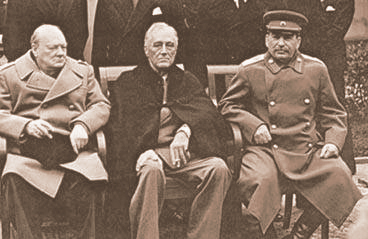 In hindsight one wonders whether there was any substantive difference between warmongering Americanism and Communism? If one takes into account the behaviour of American military authorities in Germany after World War II, it becomes clear why American elites, half a century later, were unwilling to initiate a process of decommunisation in Eastern Europe, as well as the process of demarxisation in American and European higher education. After all, were not Roosevelt and Stalin war time allies? Were not American and Soviet soldiers fighting the same ‘Nazi evil’?
In hindsight one wonders whether there was any substantive difference between warmongering Americanism and Communism? If one takes into account the behaviour of American military authorities in Germany after World War II, it becomes clear why American elites, half a century later, were unwilling to initiate a process of decommunisation in Eastern Europe, as well as the process of demarxisation in American and European higher education. After all, were not Roosevelt and Stalin war time allies? Were not American and Soviet soldiers fighting the same ‘Nazi evil’?
It was the inhumane behaviour of the American military interrogators that left deep scars on the German psyche and which explains why Germans, and by extension all Europeans, act today in foreign affairs like scared lackeys of American geopolitical interests…
A whole fleet of aircraft was used by General Eisenhower to bring journalists, Congressmen, and churchmen to see the concentration camps; the idea being that the sight of Hitler’s starved victims would obliterate consciousness of our own guilt. Certainly it worked out that way. No American newspaper of large circulation in those days wrote up the horror of our bombing or described the ghastly conditions in which the survivors were living in the corpse-filled ruins. American readers sipped their fill only of German atrocities. [Freda Utley, The High Cost of Vengeance (Chicago: Henry Regnery Co. 1949), p. 183]
Utley’s work is today unknown in American higher education although her prose constitutes a valuable document in studying the crusading and inquisitorial character of Americanism in Europe.
There are legions of similar revisionist books on the topic describing the plight of Germans and Europeans after the Second World War, but due to academic silence and self-censorship of many scholars, these books do not reach mainstream political and academic circles. Moreover, both American and European historians still seem to be light years away from historicising contemporary history and its aftermath. This is understandable, in view of the fact that acting and writing otherwise would throw an ugly light on crimes committed by the Americans in Germany during and after the second World War and would substantially ruin antifascist victimology, including the Holocaust narrative.
American crimes in Europe, committed in the immediate aftermath of the Second World War, included extra-killings of countless German civilians and disarmed soldiers, while tacitly approving serial Soviet genocides and mass expulsions of the German civilian population in Eastern Europe… As years and decades went by, crimes committed by the Americans against the Germans were either whitewashed or ascribed to the defeated Germans…
The exact number of German causalities during and after the Second World War remains unknown. The number of German dead varies wildly, ranging from 6 to 16 million Germans, including civilians and soldiers… It is only the fascist criminology of World War II, along with the rhetorical projection of the evil side of the Holocaust that modern historiographers like to repeat, with Jewish American historians and commentators being at the helm of this narrative. Other victimhoods and other victimologies, notably those people who suffered under communism, are rarely mentioned… According to some German historians over a million and a half of German soldiers died after the end of hostilities in American and Soviet-run prison camps…
The masters of discourse in postmodern America have powerful means to decide the meaning of historical truth and provide the meaning with their own historical context. Mentioning extensively Germany’s war loses runs the risk of eclipsing the scope of Jewish war loses, which makes many Jewish intellectuals exceedingly nervous. Every nation likes to see its own sacred victimhood on the top of the list of global suffering. Moreover, if critical revisionist literature were ever to gain a mainstream foothold in America and Europe, it would render a serious blow to the ideology of Americanism and would dramatically change the course of history in the coming decades.
My two cents
What Stalin and the Anglo-Saxons did in World War II produces a phenomenal hatred in me. For the second time in history since Charlemagne, the possibility of Aryan liberation thanks to Germania was crushed… by other Aryans. Today the United States, like the Judaised Rome since the times of Constantine, is the enemy to overcome. It is time to start preaching an infinite hatred for the new Great Whore that must be crushed in the coming apocalypse.
I call the people of the Americanised alt-right ‘Jew-obeyers’ because they have internalised the Christian prohibition to hate. I have recently learned that The Occidental Observer published an article on hate but let me guess: Did that article blame Christianity one hundred percent for the psyop against hating (remember I no longer read alt-right articles)? Instead of a conservative webzine like The Occidental Observer I prefer the words Kai Murros said about hate. Listen to Murros in a very short clip where a couple of bars of Parsifal’s music can be heard: here. Or what Alex Linder wrote:
Hate is not some useless organ like the appendix. It’s there for a reason. Why does Christianity do all it can to talk us out of necessary and functional drives? Well, the answer is that it’s a bit of software meant to disable our enemy recognition module. Christianity preaches blind love, and that love is murdering the West.
